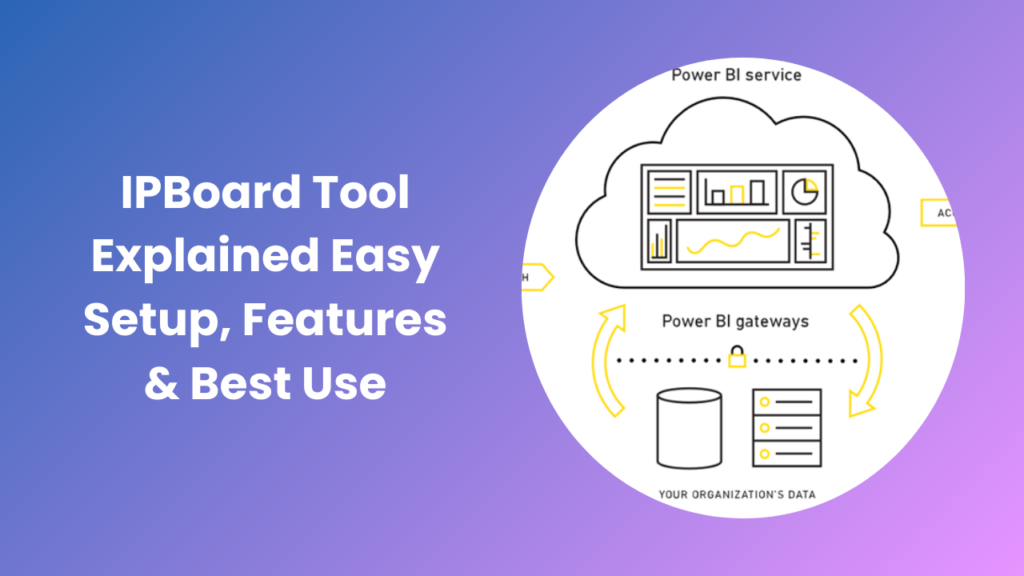In today’s digital age, online communities play a central role in connecting people with shared interests, fostering collaboration, and creating spaces for discussion. Among the platforms available, the ipboard tool has gained significant recognition for providing a streamlined, professional, and highly customizable community experience. It supports forums, community-driven websites, and businesses looking to engage users more effectively. By combining scalability with functionality, it has become a top choice for creating meaningful digital interactions.
Beyond managing conversations, this platform provides a structured environment for knowledge sharing, problem-solving, and networking. Its adaptability and rich feature set make it ideal for organizations aiming to create dynamic online spaces that retain active engagement. Many organizations have also reported increased productivity and better user satisfaction after implementing this tool, as it facilitates organized communication and reduces redundant interactions.
Evolution of Online Community Platforms
Online communities have evolved far beyond simple message boards. Early internet forums were basic in design and limited in functionality, often failing to meet the expectations of a growing user base. These early platforms were largely static, offering minimal interactive engagement or customization options.
As demand increased for more advanced features, modern community management tools emerged. Today’s platforms provide intuitive interfaces, moderation capabilities, and seamless integration with other applications, transforming forums into fully-featured online ecosystems. Features such as member reputation systems, private messaging, advanced notifications, and content management ensure that users remain engaged and invested over time.
Additionally, modern tools prioritize mobile accessibility, allowing members to stay connected on the go. This shift reflects changing user habits, as community engagement increasingly occurs through smartphones and tablets rather than desktop computers alone. Platforms that adapt to these trends, like IPBoard, maintain high participation rates and overall member satisfaction.
Why Modern Community Platforms Are Essential
Reliable community platforms offer benefits for both administrators and members. Administrators gain advanced management tools, analytics, and customization options, allowing them to maintain control while supporting growth. Members enjoy a smooth interface for posting, interacting, and navigating the platform efficiently.
A modern online community platform is more than just a place to exchange messages; it is a hub for collaboration, learning, and engagement. Communities that use professional forum software often see increased participation, stronger connections among members, and improved knowledge sharing across the network. Features like gamification, reputation points, and interactive polls further incentivize participation, encouraging members to stay active and contribute consistently.
Key Features of a Leading Forum Software
User-Friendly Interface
One of the most critical features of professional forum software is a clean, intuitive interface. New users can easily navigate the platform, participate in discussions, and find content without frustration. This ease of use encourages higher engagement, creating a vibrant and active community environment.
Furthermore, platforms that prioritize accessibility for users with disabilities ensure inclusivity, allowing every member to participate fully. Accessibility features such as screen-reader compatibility, adjustable fonts, and high-contrast modes enhance the overall user experience and expand the reach of the community.
Scalability and Customization
Communities grow over time, and the software supporting them must evolve accordingly. Modern community platforms allow administrators to scale effortlessly, whether for a small niche group or a network of thousands of members. Customization options such as themes, layouts, and functional adjustments help organizations maintain a unique brand identity while providing members with a seamless experience.
Customization also extends to user permissions and group management. Administrators can create specialized subgroups, assign moderators, and manage access levels, ensuring that each member has the right level of interaction and responsibility within the community.
Integrated Applications
Beyond forums, leading platforms often integrate additional applications, including blogs, e-commerce tools, learning management systems, and content management systems. These integrations allow communities to centralize digital operations, enabling members to access all resources from a single hub. Organizations can combine discussions, tutorials, and support functions within one cohesive platform.
For example, a business community can host product-related discussions, share training resources, and offer customer support all in one place, eliminating the need for multiple disjointed systems. Similarly, educational communities can integrate course materials, quizzes, and collaboration spaces to create a fully interactive learning environment.
Security and Reliability
Security is a top concern for any online community. Professional platforms ensure encrypted communications, secure authentication, and regular updates to protect user data. Reliability guarantees that communities remain accessible and operational, fostering trust and engagement among members.
Advanced platforms also provide automated backup systems, ensuring that critical data and content are protected against accidental loss or malicious attacks. The combination of security, reliability, and uptime ensures that members and administrators can focus on collaboration and growth without technical interruptions.
Business, Educational, and Nonprofit Use Cases
Businesses leverage community platforms to create support forums and knowledge-sharing hubs. Customers can interact with representatives, provide feedback, and even assist other users, reducing the workload of customer service teams while enhancing engagement. Communities also serve as channels for gathering insights into product development and customer preferences, making them an invaluable resource for strategy and innovation.
Educational institutions benefit from interactive forums where students can collaborate, share resources, and participate in course-specific discussions. This encourages peer-to-peer learning, improves communication between students and instructors, and increases engagement. Educators can track participation, monitor discussions, and provide timely feedback, ensuring a high-quality learning experience.
Nonprofits rely on online communities to connect members around shared goals, organize events, and exchange resources. Platforms that provide structured, professional environments help these organizations maintain long-term engagement and build loyalty among their members. Volunteer coordination, fundraising discussions, and advocacy campaigns can all be efficiently managed through an integrated community platform.
Hobbyist groups thrive on forums designed to support collaboration and knowledge sharing. Whether for gaming, fitness, photography, or creative arts, community software allows enthusiasts to connect, learn, and share experiences in an organized and searchable environment. This fosters a sense of belonging and helps users develop their skills while contributing to the community’s growth.
Comparing Forum Software Solutions
When evaluating online community solutions, modern platforms offer a clear advantage over outdated alternatives. Many basic forums lack advanced features, integration options, and modern user experiences. In contrast, professional software provides a robust framework that can grow with the community, ensuring longevity and member satisfaction.
The best platforms balance performance, usability, and adaptability, giving administrators the tools they need to maintain a professional community while keeping members engaged and active. Tools that allow analytics and reporting further enable administrators to make informed decisions about engagement strategies, content planning, and member retention efforts.
Benefits of Using a Professional Community Platform
Engagement and Retention
Communities thrive when members are actively participating. Platforms with intuitive design, customization options, and integrated tools increase engagement, encouraging members to return and contribute regularly. Gamification, interactive features, and reward systems can further incentivize participation, fostering a loyal and active member base.
Administrative Control
Effective moderation, reporting, and analytics help administrators manage communities efficiently. Admins can track user activity, moderate discussions, and implement rules that maintain a safe, productive environment for all users. Real-time monitoring of discussions also helps prevent conflicts and ensures compliance with community guidelines.
Professional Image
A professional, well-designed community platform enhances credibility. Organizations that invest in polished, reliable platforms are more likely to attract new members, partners, and stakeholders while reinforcing trust with existing users. A strong digital presence also strengthens the organization’s overall reputation and perceived expertise.
Challenges and Considerations
Even the best platforms require thoughtful planning. Licensing costs may be a factor for smaller organizations, and advanced customization might require technical expertise. Migrating from another platform can also be complex depending on the structure of the existing community.
Another consideration is ongoing community management. Maintaining engagement, responding to user needs, and updating content are essential for long-term success. Despite these challenges, the long-term benefits of engagement, scalability, and security make professional software a valuable investment for most organizations.
Future Trends in Community Platforms
The future of digital communities focuses on integration, personalization, and advanced analytics. Platforms may incorporate AI-driven moderation, predictive engagement tools, and deeper social media integration to enhance user experience.
Personalization features such as content recommendations, customized notifications, and adaptive learning tools will help members engage more meaningfully with the platform. Predictive analytics can anticipate user behavior, enabling administrators to proactively enhance engagement and retention strategies.
Additionally, virtual and augmented reality integration may redefine community interactions, offering immersive experiences and real-time collaboration in ways that traditional forums cannot match. Platforms that adopt these innovations early will likely set new standards for engagement and user satisfaction.
Conclusion
In a world where online interactions increasingly define relationships and brand perception, using a professional solution like the ipboard tool can make all the difference. It provides a balance of functionality, scalability, and user experience that supports vibrant, professional, and interactive communities. By adopting such a tool, organizations can foster meaningful engagement, retain members, and create long-lasting digital ecosystems that grow alongside their goals.
The combination of security, customization, and integrated applications ensures that communities can adapt to evolving digital trends while maintaining high engagement and user satisfaction. Organizations that invest in such platforms position themselves for long-term success, creating communities that are not only active but also valued by their members.
FAQs
How does IPBoard compare to other forum software?
IPBoard offers advanced customization, integration options, robust security, and continuous updates, making it suitable for communities of all sizes.
Can IPBoard be customized for my brand?
Yes, administrators can adjust themes, layouts, and features to align with their brand identity and community goals.
Is it secure for sensitive data?
Yes, IPBoard uses encryption, secure authentication, and regular updates to ensure user data remains protected.
Who can benefit from IPBoard?
Businesses, educational institutions, nonprofits, and hobbyist communities seeking professional and engaging online forums can benefit from this platform.
Can IPBoard handle large communities?
Yes, the software is highly scalable and can support small groups as well as large networks with thousands of active members without sacrificing performance.
How does IPBoard improve member engagement?
With intuitive navigation, integrated tools, gamification features, and mobile accessibility, IPBoard ensures members remain active and engaged, fostering long-term loyalty.





